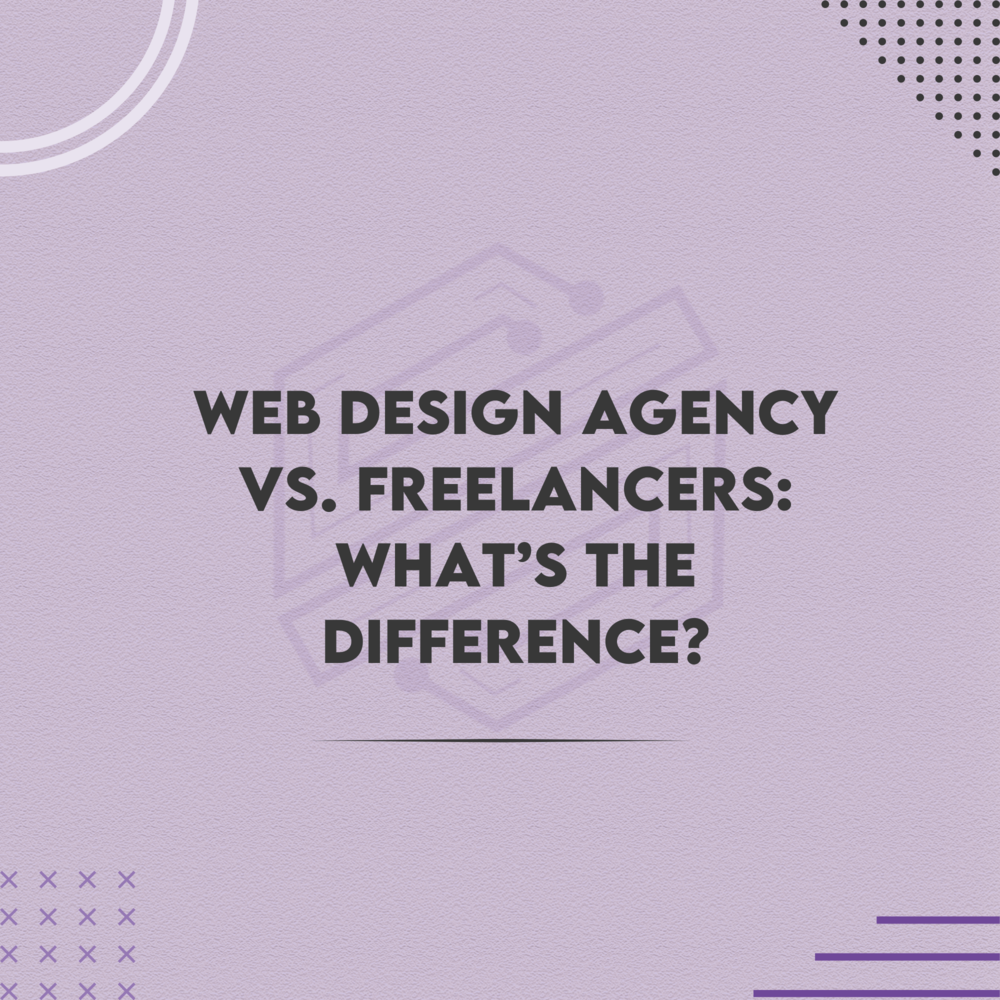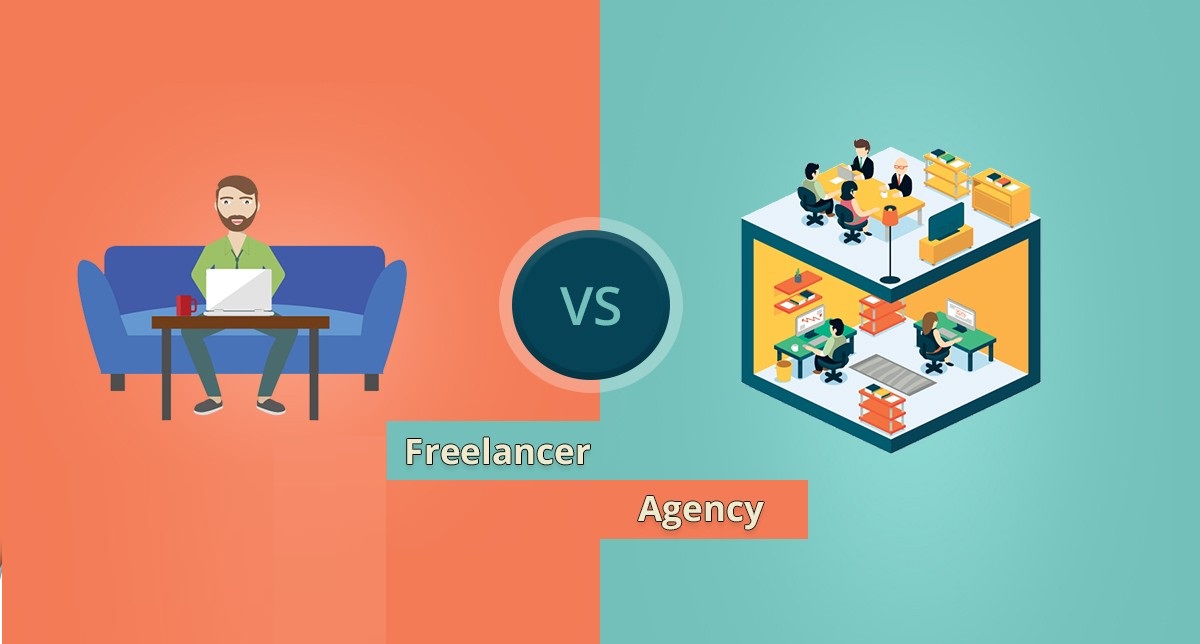In today’s digital age, businesses need a strong online presence to succeed. Whether you’re a small startup or a large corporation, having a well-designed website is crucial. When it comes to web design, you have two main options: hiring a web design agency or working with a freelance designer. Each has its pros and cons, and understanding the differences can help you make the best choice for your business.
Expertise and Resources
Web Design Agencies:
Agencies typically offer a team of professionals, each specializing in different aspects of web design and development. From graphic designers and developers to SEO experts and project managers, agencies bring a diverse skill set to the table. This collective expertise ensures a well-rounded approach to your project, covering everything from the initial concept to the final launch.
Freelancers:
Freelancers, on the other hand, are usually solo professionals who may specialize in one or two areas of web design. While many freelancers are highly skilled and capable of delivering excellent work, they might not have the same breadth of expertise as an agency. However, freelancers often collaborate with other professionals to fill in any gaps, providing a more tailored service.
Cost and Budget
Web Design Agencies:
Agencies often come with higher price tags due to their overhead costs and the comprehensive services they provide. However, this investment can be worthwhile for businesses that need a complex, high-quality website with ongoing support and maintenance. Agencies are also more likely to have established processes and tools that ensure your project is completed efficiently and to a high standard.
Freelancers:
Freelancers generally offer more affordable rates than agencies, making them an attractive option for small businesses or startups with limited budgets. Since freelancers typically have lower overhead costs, they can provide competitive pricing. However, it’s important to consider that lower costs might sometimes mean longer timelines or less comprehensive services.
Flexibility and Personalization
Web Design Agencies:
Agencies often have more rigid structures and processes in place, which can lead to less flexibility. They might have set packages and timelines that don’t always accommodate specific client needs. However, their structured approach can also mean more predictable outcomes and deadlines.
Freelancers:
Freelancers tend to offer greater flexibility and personalization. They can adapt their schedules to meet your needs and provide a more customized experience. This personalized approach can be particularly beneficial for businesses with unique requirements or those looking for a more hands-on relationship with their designer.
Communication and Project Management
Web Design Agencies:
With agencies, you’ll typically work with a dedicated project manager who acts as a liaison between you and the design team. This can streamline communication and ensure that your project stays on track. However, the multiple layers of communication can sometimes slow down the process or lead to misunderstandings.
Freelancers:
When working with a freelancer, you communicate directly with the person responsible for your project. This direct line of communication can lead to quicker decisions and more efficient problem-solving. However, it also means that the freelancer is juggling multiple roles, which can sometimes impact the speed and quality of communication.
Quality and Consistency
Web Design Agencies:
Agencies often have established quality control processes and standards that ensure consistency across all projects. They are also more likely to have experience working with a variety of clients and industries, which can translate into a higher level of professionalism and reliability.
Freelancers:
Freelancers can offer high-quality work, but the consistency might vary depending on their workload and individual circumstances. It’s crucial to thoroughly vet freelancers and review their portfolios to ensure they can deliver the quality you expect.
Updated Industry Knowledge
Web Design Agencies:
Agencies usually stay updated with the latest industry trends and technologies, given their exposure to diverse projects and ongoing training. They can provide cutting-edge solutions that keep your website competitive and relevant.
Freelancers:
While many freelancers also keep up with industry advancements, they may not have access to the same resources or training opportunities as agencies. However, freelancers often bring fresh perspectives and innovative ideas, staying current through personal research and professional development.
Making the Decision
Choosing between a web design agency and a freelancer ultimately depends on your specific needs, budget, and project scope. If you require a comprehensive, high-quality website with ongoing support and are willing to invest accordingly, a web design agency might be the best choice. On the other hand, if you have a limited budget and need a more flexible, personalized approach, a freelancer could be the perfect fit.
Remember, the key is to thoroughly research and vet your options. Look at portfolios, read reviews, and have detailed discussions with potential designers or agencies to ensure they understand your vision and can deliver the results you need.
In conclusion, both web design agencies and freelancers offer unique advantages. By understanding the differences and evaluating your business’s specific requirements, you can make an informed decision that will set your online presence up for success.












